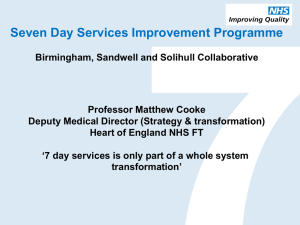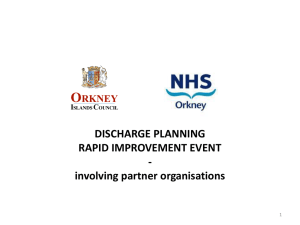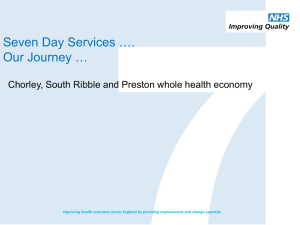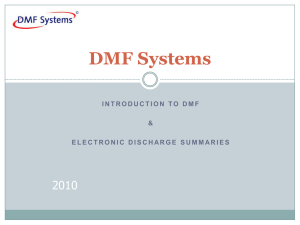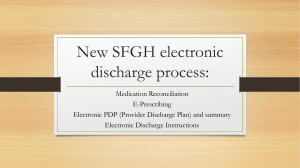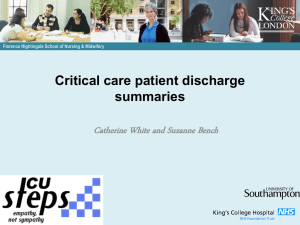discharge planning powerpoint
advertisement
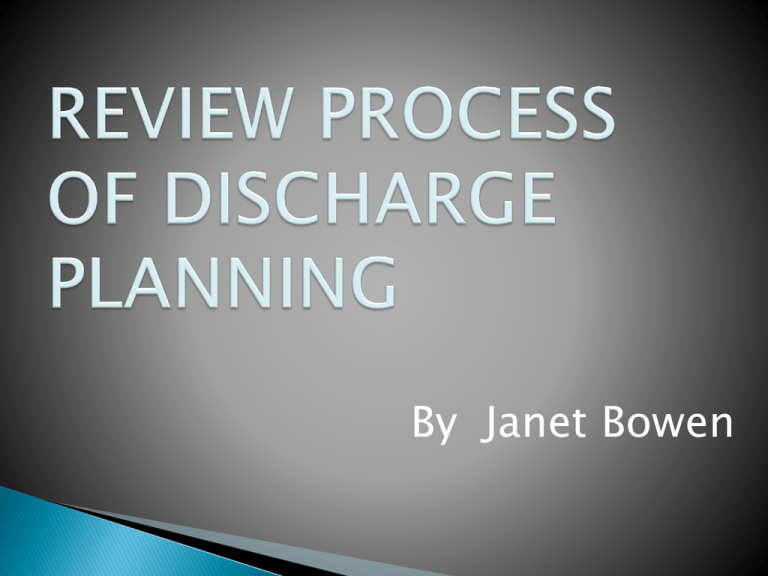
By Janet Bowen WHAT IS DISCHARGE PLANNING Discharge planning is the process by which the patient is assisted to develop a plan of care for ongoing maintenance and improvement of health care even after he or she may be discharge from the acute care hospital. IMPLEMENTATION OF DISCHARGE PLANNING Discharge planning has been part of nursing for a long time. It is a vital aspect of patient care and labeled as a patient’s right. Patient’s play an important role in contributing to care outside the hospital. Hospitals continue with the continuity of care and allows many patient to be independent quickly. What is necessary for the Discharge Process? Advisement of the next Doctor’s visit. Review of the patient Medicare insurance payment. Explanation of the patient medication regiment. Uniformity with home health care in the home. Any type of equipment for example like wheelchair, walker special beds are taken care of before the discharge. Multidisciplinary Process of discharge planning Discharge planning department Continuity of care department Clinical social work department Patient management Services Case management Department Patient resources department Utilization management services.etc Variation in the discharge planning process Over 65 years of age and lives alone Developmentally disable, regardless of age Suspected abuse or neglect Admitted from a nursing home, residential care home, or specialty hospital No known address or residence outside the area Readmissions within 30days Attempted suicide Crucial part of discharge planning Medical record review Assessment patient mental state support system financial position Patient Interview and family involvement Questioning the patient intelligence and observation in discharge planning process Does he or she follow instruction? Does he or she seem angry at or fearful of family members? Does the patient live in a house, condo apartment? Does the patient share a bedroom with someone. Who is responsibility for laundry, meals and shopping? Education, Teaching Return demonstration Diet Diabetic teaching Crutch training, walker or wheel chair mobility Help necessary for grocery shopping Bed adequacy Transfer from bed to chair Family participation Financial burden Benefits Available Medicare is available to people who meet requirements. 65 years old Disabled for two years or longer People with permanent kidney failure Application to the program before age 65. Medicare part A and Medicare part B Appropriate Discharge planning Focus on health education Disease management Reduction in hospital cost Patient rights/involvement of family and decision making discharge planner integrity Smooth transition into the community Follow up phone call within 24 hours of discharge


